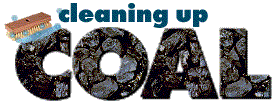Robert Kaplan wrote a predictably horrible defense of empire that a number of people are giving the appropriate disdainful treatment.
Against my better judgement, I’d like to take a different approach and treat it as a useful piece (though not one I agree with or find palatable at all).
I think its useful, in part, against the background of the NSA disclosures. Key players in NSA discussions — people who travel some of the same circles as Kaplan, even — premise their treatment of the disclosures from an exclusively national perspective, completely ignoring that the NSA (and its GCHQ poodle) is different precisely because it depends on and serves as a key instrument of authority in an empire (or global hegemon, if the term empire gives you the willies). Approaching and assessing NSA’s behavior solely from a national perspective not only represses the obvious reasons why NSA’s dragnet of other countries’ citizens matters, but it also fails to assess our actions in the proper light, even from the standpoint of efficacy. NSA’s tasking choices reflect not our national interest, but rather the needs of the empire, which is why a relatively minor country like Venezuela gets prioritized along with Russia and China. That’s why we made Huawei such a high priority target: because it presents a unique threat to the functioning of our empire.
I would like to get to the point where we can discuss the NSA disclosures not just in terms of what they mean for Americans’ civil liberties as well of those who may not enjoy Fourth Amendment protection but nevertheless are citizens in a US order, but also whether the prioritization of complete dragnet and offensive spying and hacking serves the interests to which they’ve been put, that of the American global hegemon.
And here’s where I think Kaplan, in spite of his racism and paternalism and selective history, serves a useful role at this point in time. He claims, cherry picking from history, that only empires can provide order.
Throughout history, governance and relative safety have most often been provided by empires, Western or Eastern. Anarchy reigned in the interregnums.
And then he asks whether or not America can afford to sustain its own empire.
Nevertheless, the critique that imperialism constitutes bad American foreign policy has serious merit: the real problem with imperialism is not that it is evil, but rather that it is too expensive and therefore a problematic grand strategy for a country like the United States. Many an empire has collapsed because of the burden of conquest. It is one thing to acknowledge the positive attributes of Rome or Hapsburg Austria; it is quite another to justify every military intervention that is considered by elites in Washington.
Thus, the debate Americans should be having is the following: Is an imperial-like foreign policy sustainable?
[snip]
Once that caution is acknowledged, the debate gets really interesting. To repeat, the critique of imperialism as expensive and unsustainable is not easily dismissed.
Perhaps predictably Kaplan dodges his own question, never seriously answering it. Instead of answering the question that he admits might have answers he doesn’t much like, he instead spends a bunch of paragraphs, in all seriousness, arguing that Obama is pursuing a post-Imperial presidency.
Rather than Obama’s post-imperialism, in which the secretary of state appears like a lonely and wayward operator encumbered by an apathetic White House, I maintain that a tempered imperialism is now preferable.
No other power or constellation of powers is able to provide even a fraction of the global order provided by the United States.
And by dodging his own question by launching a partisan attack, Kaplan avoids a number of other questions. Not just whether the American empire is sustainable, but whether there’s something about the means of American empire that has proven ineffective (which is really a different way of asking the same question). Why did Iraq end up being such catastrophe? Why did we lose the Arab Spring, in all senses of the word? Why, even at a time when the US still acts as global hegemon, is instability rising?
There are some underlying reasons, like climate change, that the imperialists would like to distinguish from our oil-based power and the dollar exchange it rests on.
But even more, I think, the imperialists would like to ignore how neoliberalism has gutted the former source of our strength, our manufacturing, has led us to increased reliance on Intellectual Property, and has not offered the people in our realm of influence the stability Kaplan claims empire brings. People can’t eat, they can’t educate their children, they can’t retire because of the policies Kaplan and his buddies have pushed around the world. And the US solution to this is more trade pacts that just further instantiate IP as a core value, regardless of how little it serves those people who can’t eat.
The NSA is intimately a part of this, of course. The reason I find it so hysterical that NSA’s one defense against China is effectively the IP one — the NSA doesn’t steal IP and give it to “private” companies to use. But that’s just another way of saying that the empire we’ve rolled out has failed to protect even the increasingly ineffective core basis of our power, its IP.
I’ve said this before, but what is happening, increasingly, is that the US has to coerce power rather than win it through persuasion — persuasion that used to be (at least for our European allies) increased quality of life. It’s a lot more expensive to coerce power, both in terms of the military adventures or repression you must engage in, but also in terms of the dragnet you must throw across the world rather than the enhanced communication of an open Internet. Nevertheless, the Obama Administration, for all of Kaplan’s claimed post-Imperialism, seems to be doubling down on more coercive (or, in the case of trade agreements, counterproductive) means of retaining power.
And so Kaplan, who’s so sure that empire is a great thing, might be better considering not empire in the abstract (indeed, abstracted to the point of suppressing the many downsides of empire), but the empire we’ve got. He seems to implicitly admit he can’t rebut the claim that our empire is no longer sustainable, but since he can’t he changes the subject. Why is our empire unsustainable, Robert Kaplan? And for those who believe the US offers a good — or even a least-bad — order for the globe, what do you intend to do to return it to sustainability?
Dragnets and austerity aren’t going to do it, that’s for sure.
Update: Thanks to Wapiti for alerting me to my huge error of substituting Kagan (generic neocon name) for Kaplan’s actual last name. Sorry for the confusion.

![[Source: Google Trends and Google Finance]](http://www.emptywheel.net/wp-content/uploads/2014/03/Trend_Ukraine-Venezuela_Petro-Gas_02MAR2014-e1393824251507.jpg)

